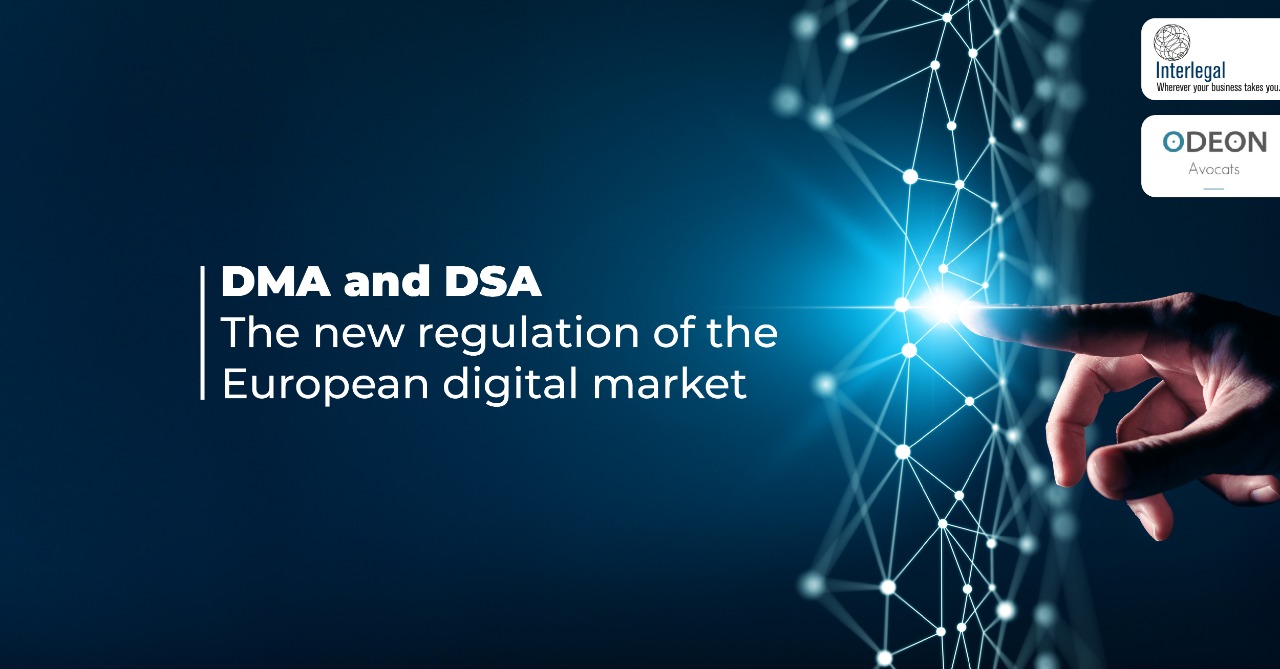Two provisional political agreements were reached between the Council and the European Parliament on digital market legislation on 24 March 2022 and on digital services legislation on 23 April 2022.
Nowadays, the European digital market is made up of more than 10,000 online platforms and e-commerce will represent 757 billion euros in sales in 2021. In the face of this digital development, the new legislation aims to modernise European regulation to make the digital market safer and fairer.
The Digital Market Act (DMA)
The Digital Markets Regulation aims to establish a level playing field for innovation, growth, and competitiveness in the European market.
The DMA exclusively concerns large platforms defined as “gatekeepers” that have a turnover of €7.5 billion and control a platform used by more than 45 million Europeans (Google, Apple, Facebook, Amazon, Microsoft…).
Among the various obligations, some directly concern the companies that work with these platforms. In this sense, the DMA provides that a company, and in particular a seller of goods online, will be able to request access to data generated by its activities (marketing performance, etc.) and to data related to the advertisements it finances on a “gatekeeper” platform.
In addition, regarding individuals, gatekeepers will only be able to associate a user’s personal data with targeted advertising if the user has given his or her explicit consent.
Digital Service Act (DSA)
The Digital Services Regulation, on the other hand, aims to create a safer digital space in which the fundamental rights of all users of digital services are protected. The watchword is “what is illegal offline should also be illegal online“.
In this sense, the new regulation modernises part of the previously unchanged 2000 directive on electronic commerce, in order to tackle illegal content (hate, child pornography, terrorism…) and illegal products (counterfeit or dangerous) offered online.
All companies offering “intermediary services” to European users are concerned: internet access providers, cloud services, messaging systems, marketplaces, and social networks. However, the larger the platform, the greater their responsibilities.
Thus, the regulation harmonises the notification procedure for the removal of illegal content and products hosted by platforms. Even if their liability remains limited as a passive host, they will be obliged to offer a tool allowing users to report such content and products, and to remove them once reported.
In addition, the DSA also aims to ban targeted advertising content based on sensitive personal data such as religion, gender, or political beliefs, as well as “dark patterns”, which lead users to perform unwanted actions on a site for the benefit of the latter.
***
Both political agreements must now be formally adopted by the Council and the European Parliament. If adopted, the DSA is expected to enter into force from 1 January 2024, while the DMA will have to be implemented six months after its entry into force, expected at the end of 2022.
These new regulations will lead to a change in the legal framework of the digital market and services. A transition in which our lawyers will assist you.
